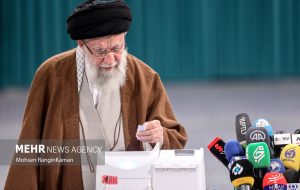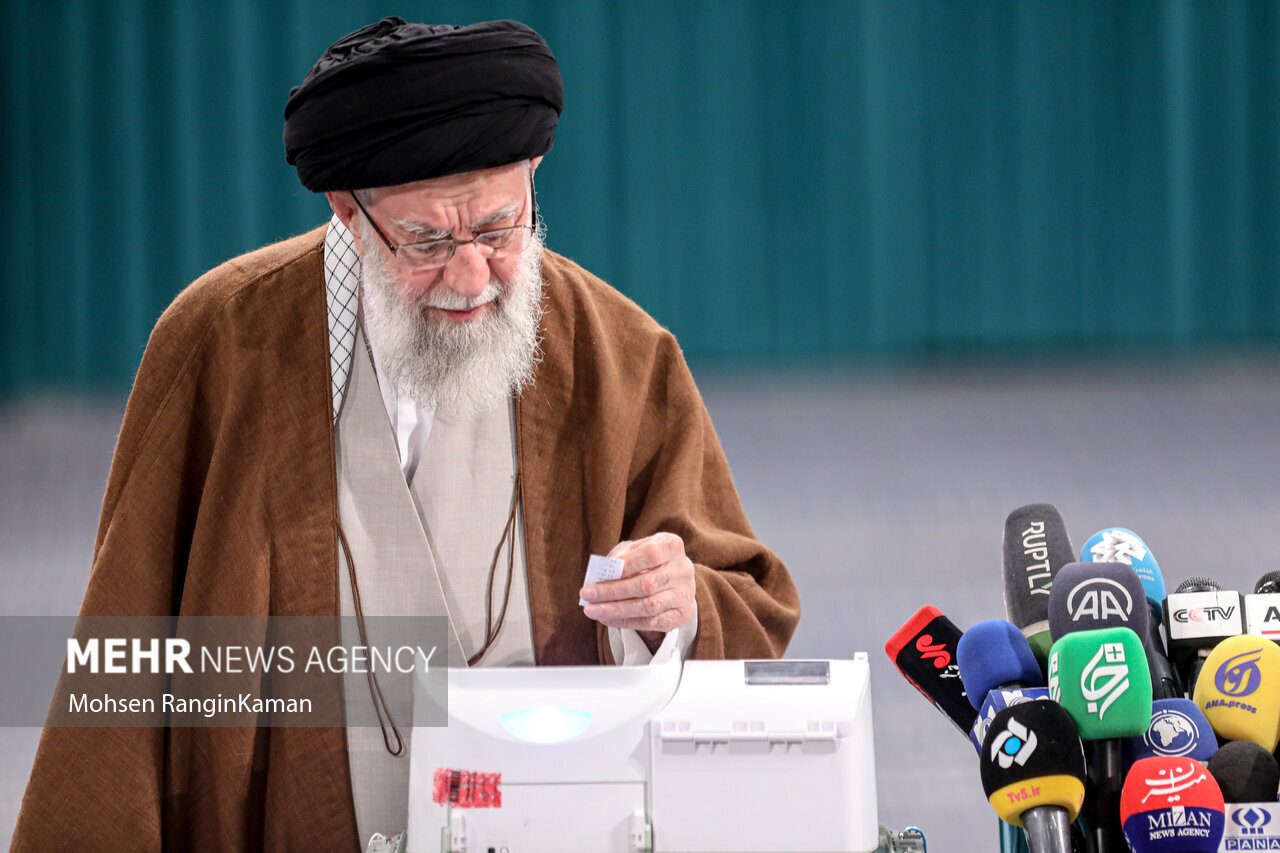Iranians vote in parliamentary runoff as Leader calls for strong voter turnout
TEHRAN – Iranians show up in large numbers for a pivotal second-round runoff election to finalize the lineup of the country’s parliament. With Ayatollah Seyyed Ali Khamenei, the Leader of the Islamic Revolution, calling for a strong voter turnout, citizens in 22 constituencies nationwide embarked on the task of choosing 45 representatives from a pool


TEHRAN – Iranians show up in large numbers for a pivotal second-round runoff election to finalize the lineup of the country’s parliament.
With Ayatollah Seyyed Ali Khamenei, the Leader of the Islamic Revolution, calling for a strong voter turnout, citizens in 22 constituencies nationwide embarked on the task of choosing 45 representatives from a pool of 90 candidates.
The polling stations opened promptly at 8 a.m. local time (0430 GMT) on Friday in 15 provinces, signaling the start of a critical electoral process. In Tehran, the political hub where stakes are particularly high, voters were tasked with electing 16 representatives from a competitive field of 32 candidates.
While final results are scheduled for release on Monday, early indications from smaller constituencies are expected to trickle in before then, offering initial insights into the electoral landscape.
Ayatollah Seyyed Ali Khamenei wasted no time in showcasing his dedication to the democratic process, casting his ballot at a polling station in Tehran within minutes of the voting commencement. Emphasizing Iranians’ civic duty, he underscored the pivotal role of participation in shaping the nation’s future, stating, “Every person who desires Iran’s progress has a national duty to participate in the election.”
Stressing the significance of the second round, Ayatollah Khamenei urged widespread voter engagement, asserting that a strong turnout would strengthen the parliament and provide greater opportunities for national advancement.
Iran’s President Ebrahim Raisi also hailed the people’s participation in the parliamentary runoff election in the country, saying that he hopes the vote will help form a strong parliament.
Raisi made the comment after casting his ballot in the second phase of the parliamentary election at a mosque in Saleh Abad town, southwest of Tehran.
“One of the prides of the Islamic Republic is that our system is based on the people’s vote and the formation of all institutions in the country is based on the people’s choice. Some other countries pretend to be a democracy and talk about balloting but the system of the Islamic Republic works practically,” the Iranian president underlined.
He also pointed to the enmity toward Iran, saying the reason behind enemies’ hatred is that they see the nation’s trust in the Islamic Republic.
“I hope that with the people’s vote, a strong parliament will be formed that can pass the laws needed by the country. A strong parliament together with a strong government can create a strong Iran,” Raisi added.
Mohsen Eslami, spokesman for Iran’s Election Headquarters, echoed these sentiments, providing logistical details and confirming that polling stations would remain open for 10 hours, with the possibility of extension subject to the decision of the Interior Ministry.
Reflecting on the first round of the parliamentary election, held alongside the Assembly of Experts vote on March 1, officials noted a turnout of 41 percent, with 245 candidates surpassing the 20-percent threshold for parliamentary eligibility.
Underlining the importance of the second round, Interior Minister Ahmad Vahidi stressed that participation was “as crucial” as in the initial phase. He urged influential figures to actively encourage broad public engagement, recognizing the pivotal role of citizen participation in shaping the democratic process and upholding the legitimacy of elected representatives.
